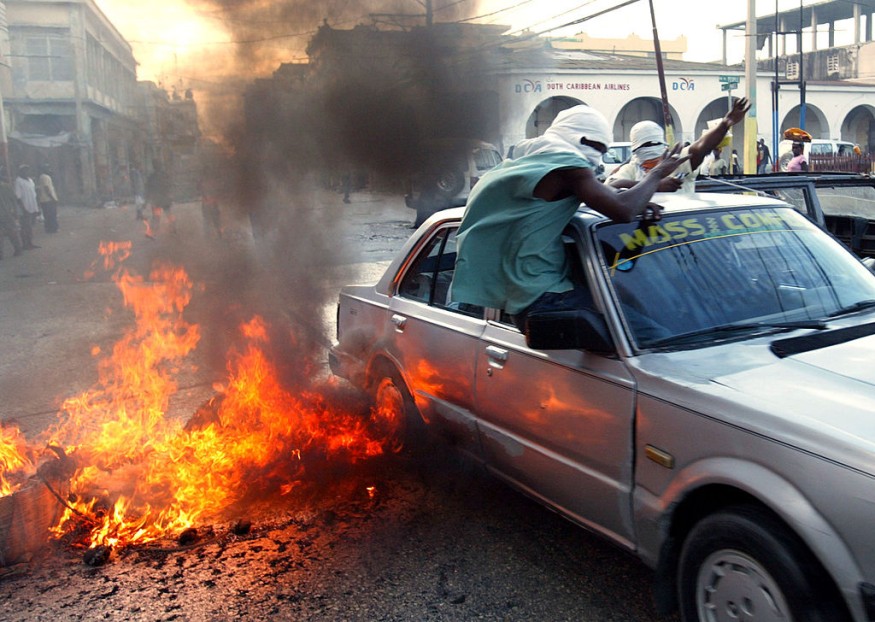Haiti: Gangs Control 60% of Capital Port-Au-Prince, UN Humanitarian Chief Says

Since Haitian President Jovenel Moise was assassinated, Haiti has been in turmoil as gangs overwhelmed police, and a cholera outbreak has decimated the population.
U.N. humanitarian chief in Haiti, Ulrika Richardson, confirmed Thursday that gangs have now taken over much of the capital, Port-au-Prince. According to Richardson, nearly 60% of Port-au-Prince is now being held by these violent street gangs, forcing many to flee their homes.
She noted that 20,000 people living in the city are now facing "catastrophic famine-like conditions" because of the violence. The Associated Press reported that gang violence is happening as the cholera outbreak continues to spread in the Caribbean nation.
U.N. Security Council Mulling Intervention in Haiti
In a press conference, Ulrika Richardson revealed that the U.N. Security Council is still discussing possible international intervention in Haiti. This comes just two months after U.N. chief Antonio Guterres proposed that several countries should send a "rapid action strike force" into the crisis-hit nation.
According to Reuters, most countries remain skeptical of sending peacekeeping missions to Haiti, as previous U.N. peacekeeping missions have failed.
Richardson admitted that there is a sense of urgency, but the matter is tricky. She told the press that Haitians face violence daily in Port-au-Prince and that this violence cannot continue.
Jovenel Moise was assassinated in 2021, which made Haitian gangs more fearless as they expanded their respective territories. They have so far overwhelmed the local police, who are outmanned and outgunned.
Gangs have controlled so much of the capital's territory that it is off-limits to the government, with gun battles between police and gangs becoming frequent.
READ NEXT : Haiti's Largest Oil Terminal Reopens for First Time Since September After Gangs Took Over
Cholera Outbreak in Haiti Worrying U.N. Officials
Ulrika Richardson also talked about the current cholera epidemic across Haiti. She confirmed that there is a continued increase in cholera cases, and it is spreading to other parts of the country.
"In eight of the 10 departments there are confirmed cholera cases, and this is a worrying trend for us and for the country," she noted.
According to the U.N. official website, 283 people have already died, with another 12,000 hospitalized and over 14,000 suspected cases. However, these are only the recorded ones, as officials believe there are far more unrecorded cases throughout Haiti.
Around $23.5 million in assistance has already been given to the country, but Richardson said it will not be enough. She noted that the country's "humanitarian needs continue to increase," adding that the U.N. is now preparing the 2023 Humanitarian Response Plan for Haiti.
This plan calls for around $719 million, almost double what they requested earlier this year. Richardson noted that there had been several positive developments in Haiti as over half of schools have reopened since they were closed due to the COVID-19 pandemic.
She also underscored the U.N. support for the country, telling the media that while they continue to have logistical and security challenges, they are still "able to be present and we are able to help people."
This article is owned by Latin Post.
Written by: Rick Martin
WATCH: Port-Au-Prince: Haiti's Capital City Taken Hostage by Brutal Gangs - From BBC News
Subscribe to Latin Post!
Sign up for our free newsletter for the Latest coverage!

















